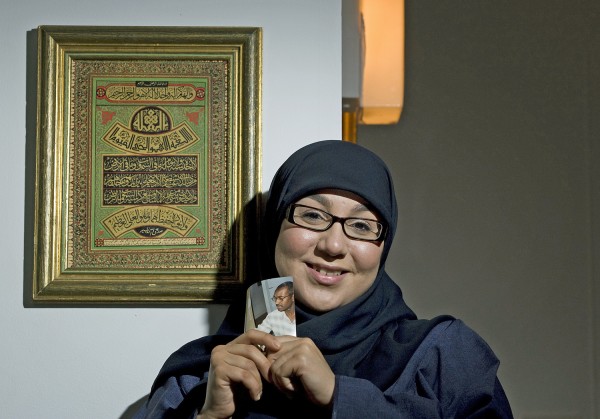To the very end, the Harper government
maintained a consistent attitude toward Abousfian Abdelrazik: mean-spirited,
callous, destructive. Instead of announcing that they were willing at long
last to allow this innocent Canadian citizen to return home from Sudan,
instead of a hint of remorse for his ordeal, instead of explaining how our
government intends to help him restore the life they stole from him six
years ago, all he and we got was a begrudging eight words from the Minister
of Justice. A Federal Court Judge, in a stinging rebuke to the Harper
government, had ordered that Mr. Abdelrazik be returned home to Canada
within 30 days. The Minister graciously announced that "the government will
comply with the court order" and sat down again.
I first wrote about Mr. Abdelrazik's awful plight in this newspaper on
March 13. I explained that a growing group of Canadians were outraged by his
treatment and were determined to help him come home. Although the government
declared it a crime to do so, many of us had donated money to buy him a
plane ticket for the long flight from Khartoum to Montréal. Now he's coming
home.
How do we account for the government's belated capitulation to the
Constitution, commonsense and public opinion? Who made this happen?
First must be the astonishing courage and resilience of Mr. Abdelrazik
himself. Imagine going to visit your family abroad one day and not returning
for six terrible years. Imagine living in the lobby of the Canadian embassy
in Khartoum for more than a year, barely tolerated by its staff, and being
toyed with by his own government, repeatedly being promised his freedom and
then having it stolen away at the last second. From hope to despair,
depression, frustration, time after time after time. Dreaming of seeing his
family in Montréal, then having the dream shattered every time. Yet the man
seems never to have succumbed to hopelessness, and seems always to have
acted with dignity.

Christinne Muschi
Wafa Sahnine, stepdaughter of exiled
Canadian Abousfian Abdelrazik, holds a picture of her stepfather in her
Montreal home on June 18, 2009, after hearing the news that he will be
allowed to return to Canada.
Still, he returns home to what? No money, no work, a family he needs to
get to know again, and post-traumatic stresses that are hardly imaginable. I
hope he sues the government for millions, though nothing can ever repair the
damage so gratuitously and deliberately caused him.
Second is the wonderful, mainly anonymous grassroots activist movement
that has pushed his cause for so many months. These are the kind of people,
often young, who get behind the hardest causes, these days often meaning the
victimization of Arab- or Muslim-Canadians. They raised the money, they
worked the media, they ratcheted up the pressure on politicians and all they
got back was the satisfaction of fighting the good fight. Who says there are
no Canadian heroes?
Third are the legal counterparts of the activists, a handful of lawyers
who worked on the case for almost two years - all pro bono. The activists
and lawyers worked hand in hand, reinforcing each other's determination and
strategies. At a time when greed seems to be the driving motive for much of
what happens in our society, these lawyers give us hope.
Fourth is Paul Dewar, an NDP Member of Parliament, and Paul Koring, a
Globe and Mail reporter.
The Liberals were deeply compromised on the Abdelrazik file. He was first
arrested by the Sudanese secret police at the request of the Canadian
government when that government was headed by Jean Chrétien. He was
imprisoned twice in Sudan for long periods and brutally tortured when Paul
Martin was prime minister. So the Liberals ducked this issue until
relatively recently. Luckily, Paul Dewar carried the ball, repeatedly
embarrassing though not shaking an intransigent Harper government. At this
low moment in our political life, Dewar reminds us what public affairs
should be all about.
As for Paul Koring, he gave the story serious coverage long before most
other media thought it remotely newsworthy. Just as the Liberals eventually
jumped on the growing bandwagon, so did other media in the last several
months. But Koring was first. Mr. Abdelrazik owes much to the two Pauls.
“Instead of a hint of remorse for his
ordeal, instead of explaining how our government intends to help him
restore the life they stole from him six years ago, all he and we got
was a begrudging eight words from the Minister of Justice.
”— Gerald Caplan
If the good guys are clear in this case, so are the bad ones. Nothing
negative enough can be said of the roles of the Chrétien, Martin and Harper
governments. Although the evidence against Abdelrazik was flimsy at best,
the Liberal government shamefully determined that he would never be allowed
to return to Canada.
Once Harper took over in 2006, and it was already obvious that there was
no evidence at all against Abdelrazik, active sadism characterized our
government's position. It was as if a decision was consciously made to make
his life as intolerable as possible, to break his will, to destroy his
humanity. Which is what they tried to do.
Why? For what conceivable reason? Until the American election, maybe to
appease the fanatics in the Bush administration. But since? Why should our
government continue to torment this man? There seems only one answer,
however unpalatable: Because they could. They had not a shred of evidence
against the man, but they believed they could operate with impunity. For
that, Mr. Abdelrazik's life has been shattered. Yet he is guilty of nothing
but having a certain kind of name, skin color and religion.
Gerald Caplan, a former NDP national campaign director, is author of
The Betrayal of Africa.

